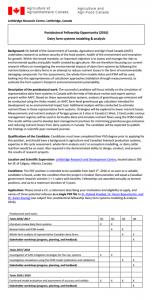The March edition of the World Farmers’ Organisation (WFO) Farmletter focuses on livestock and includes an article outlining a project from the Livestock Research Group’s workplan, ‘Reducing enteric methane for improving food security and livelihoods’ – a joint initiative of the United Nations Food & Agriculture Organisation (FAO) and the New Zealand Agricultural Greenhouse Gas Research Centre (NZAGRC). The project will design cost-effective intervention packages for specific production systems, aimed to improve farm productivity, food security and rural livelihoods.
The project is funded by the GRA Partners Climate & Clean Air Coalition (CCAC) and the FAO, and by the New Zealand Government.
Download Farmletter (LRG article @ pages 14-17)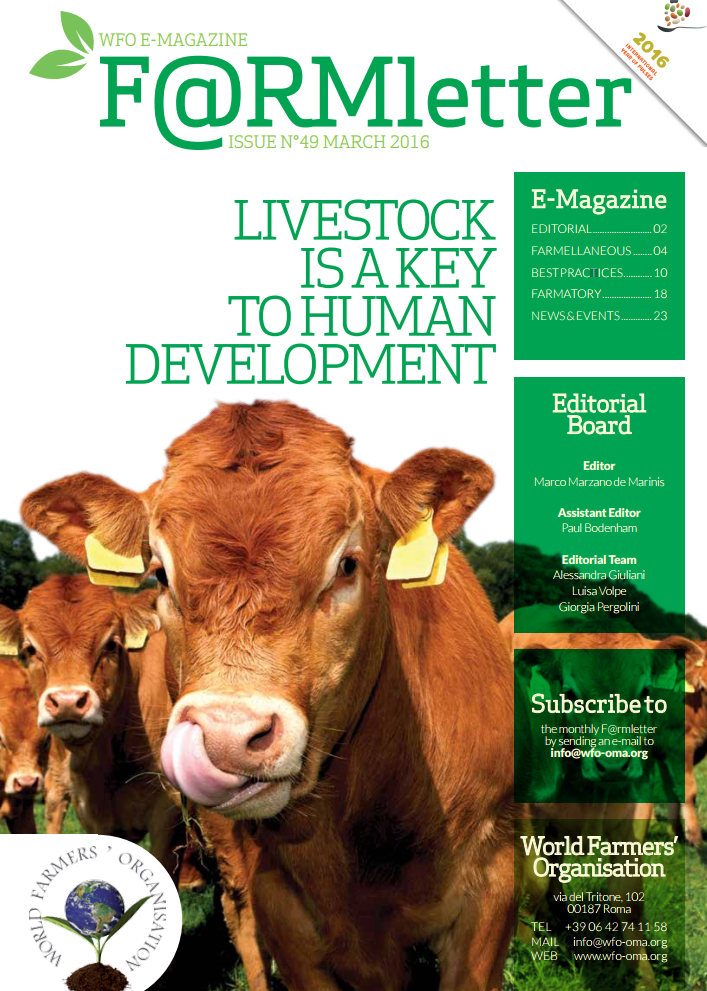
A PhD student is required for a project on the nature of stabilized carbon in soil under grasslands management, using 13C labelling techniques and molecular analyses. The project comes under the research programme “Management Options for Increasing Soil Carbon under Grasslands”, funded through the Global Partnership for Livestock Emission Research (NZ’s international research fund for GHG mitigation from pastoral livestock). The position is based at the INRA Versailles-Grignon, France.
Project Title: Quality, quantity and vulnerability of soil carbon stocks of grasslands soils under different management practices
The proposed research will be carried out under the framework of an international project between the National Institute for Agricultural Research (France) and the Landcare Research Institute (New Zealand). The objective of this international project is to evaluate the impact of intensification of grassland management on the dynamics of soil organic matter (SOM) in different pedoclimatic contexts. The PhD work will contribute towards the understanding of management impacts through the assessment of their influence on molecular transformations occurring during soil organic matter degradation and stabilisation processes. The conceptual approach includes an evaluation of degradation and stabilisation processes at field scale. We will study long-term experimental sites situated in France and in New Zealand and also use 13C labelling techniques. The results obtained during the PhD will contribute to ameliorate process information to be used in a biogeochemical model (CenW), which will allow for evaluating the implications of management practices on soil C dynamics and composition in the long-term, as well as resilience of the system to global change. The PhD thesis will provide an answer to these questions by going beyond global C stocks assessment through molecular analyses providing information on the nature and origin of SOM pools, which constitutes a major advance in the research field.
Apply with:
- A cover letter including a brief summary of research interests and experience
- Your CV and transcripts
- Contact information for 3 referees
Send by 3 May to:
Dr Abad Chabbi, [email protected]
OR
Dr. Cornelia Rumpel, [email protected]

Three Research Groups of the GRA, Croplands, Livestock and Paddy Rice, have each produced an easy-to-read overview of their group activities and structure.
Each of the brochures cover the six areas of work that the GRA focuses on: understanding the current research landscape, building capability, good practice guidance and methodologies, research networks and databases, collaborative research, and policy support & links to international initiatives.
- 2016 PRRG Brochure
- 2016 CRG Brochure
- 2017 LRG Brochure (updated March 2017)
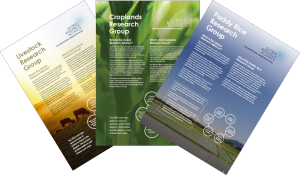
More information on each of the Research Groups can be found on the GRA website.
The National Institute for Agro-Environmental Sciences (NIAES) has announced the media release of the new publication, “Guidelines for Measuring Methane (CH4) and Nitrous Oxide (N2O) Emissions from Rice Paddies by a Manually Operated Closed Chamber Method”.
The guidelines are supported by the MIRSA-2 project “Technology development for circulatory food production systems responsive to climate change (Development of mitigation option for greenhouse gas emissions from agricultural lands in Asia)”, and funded by MAFF, Japan, to support the goals and objectives of the Paddy Rice Research Group of the Global Research Alliance.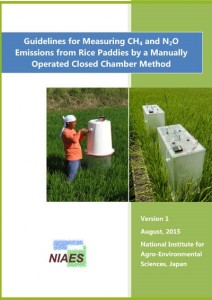
We are pleased to announce that more Member Countries of the GRA have their own country pages. Have a look at the links at http://globalresearchalliance.org/community/ to learn about agricultural GHG mitigation and Global Research Alliance involvement for Denmark, Finland, Switzerland and Vietnam. More country pages are also to come!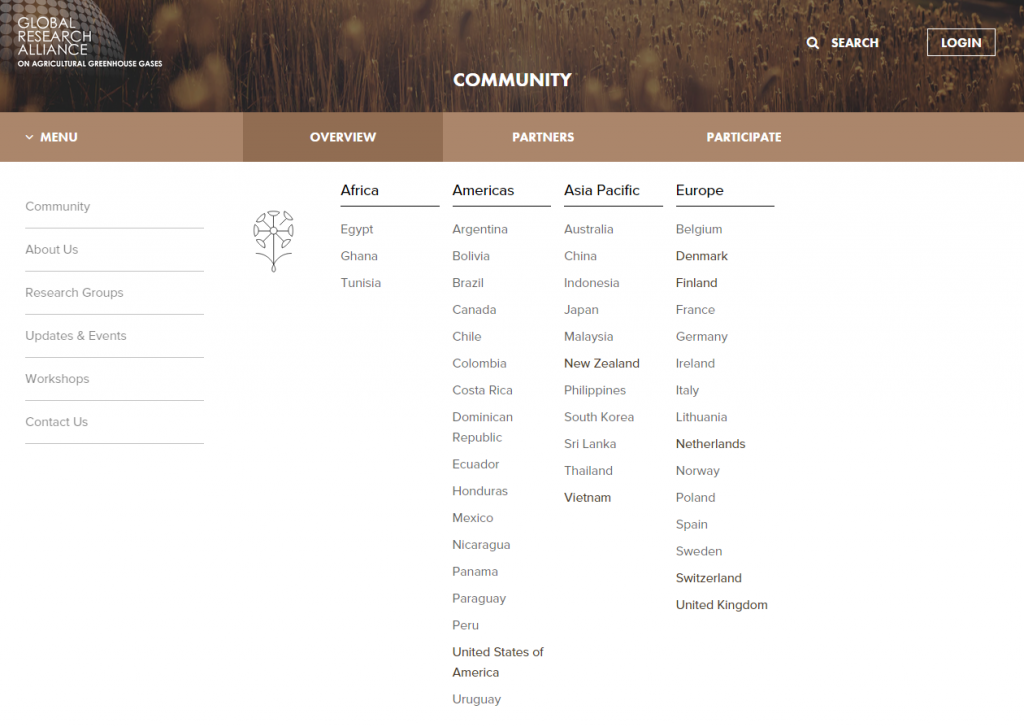
The global initiative, ‘4 per mil, Soils for Food Security and Climate’ of the Lima-Paris Action Agenda was launched during the December 2015 COP21 in Paris. It includes both an action plan and a research program, and is supported to nearly 150 signatories (including countries, regions, international agencies, the private sector and NGOs).
A Scientific Officer is sought for a two-year tenure to assist in the development of the international research program focussing on soil organic carbon in relation to the challenges of food security and climate change. Development will be supported by CGIAR, the GRA, INRA, CIRAD, and IRD in France; and by other national, European, and international partnerships.
Candidates are required to be trained in soil, environmental, or agricultural science; and to excel both in communicating research results and in organising events. Professional experience (2-5 years) would be appreciated. Working languages are French and English. The position is based at INRA’s headquaters (downtown Paris), and will involve travelling.
Salary is 2480 Euro gross/month (2060 Euro net.month)
To apply, please send your CV and covering letter by March 31, 2016:
- To: Dr Jean-Francois Soussana ([email protected])
- CC: Patricia Sanchez ([email protected])

Call for proposals: ERA-GAS ERA-NET for Monitoring & Mitigation of Greenhouse gases from Agri- and Silvi-culture.
The aim of the ERA-NET ERA-GAS Co-fund is to strengthen the transnational coordination of research programmes and provide added value to research and innovation on greenhouse gas (GHG) mitigation in the European Research Area and in New Zealand.
The scientific scope of the present call for proposals addresses collaborative projects in the following four research themes:
Theme 1): Improving national GHG inventories and monitoring, reporting and verification of emissions
Theme 2): Refining and facilitating the implementation of GHG mitigation technologies
Theme 3): State of the art production systems that are profitable and improve food and forest biomass production while reducing GHG emissions
Theme 4): Assessment of policy and economic measures to support emissions reductions across the farm-to-fork and forest-to-consumer chain.
Pre-Proposals must be submitted via the ERA-Net ERA-GAS submission tool by 3rd of May 2016 14:00 CET. Visit https://www.submission-eragas.eu/call1 to download the call announcement and for more information.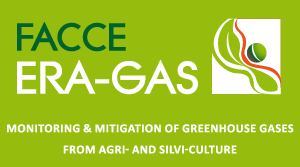
Agriculture and Agri-Food Canada (AAFC) is offering a Postdoctoral Fellowship opportunity investigating the environmental impacts of dairy farm systems. A candidate is sought to monitor nutrient balance on dairy farms in an attempt to reduce nutrient losses in the form of environmentally damaging compounds, using the whole-farm models Holos and IFSM. The candidate must have a PhD and a background in agriculture and Canadian livestock production systems, expertise in life cycle assessment, whole-farm analysis and / or ecosystem modelling, or dairy cattle nutrition.
The PDF location is the Lethbridge Research and Development Centre in Canada, and the position is intended to commence on 1 April, 2016.
To apply, email (subject line “Postdoctoral fellowship dairy farm systems modelling & analysis 2016”). a single pdf file containing your CV, a statement describing your motivation and eligibility, and three referees to:
- Dr Roland Kroebel ([email protected])
- Dr. Karen Beauchemin ([email protected])
- Dr. Karen Koenig ([email protected])
Click here for more information

The Livestock Research Group held another successful meeting 19-20 February 2016, this time in Melbourne, Australia. A highlight of this year’s LRG meeting was a joint meeting with the newly formed Integrative Research Group (IRG), which will centre around a number of networks. The IRG was agreed at the GRA Council meeting in September 2015 as a merger of the previous Soil Carbon Nitrogen Cycling Group with the Inventories and Monitoring Group. The meeting was attended by Australia, Belgium, Brazil, Canada, Chile, Colombia, Denmark, France, Ghana, Indonesia, Ireland, Italy (via Skype), Japan, Lithuania, Malaysia, Netherlands, New Zealand, Philippines, Spain, Sri Lanka, Switzerland, Thailand, United Kingdom, USA and Vietnam, along with Tanzania, Uganda and other invited guests.
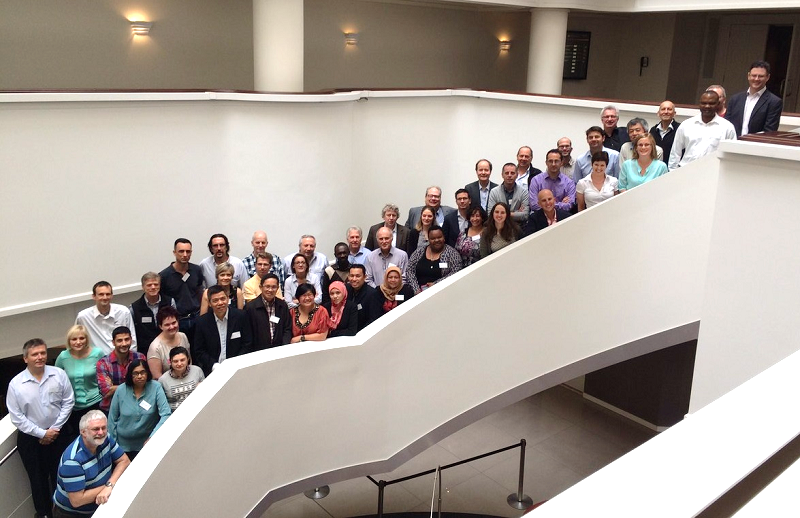
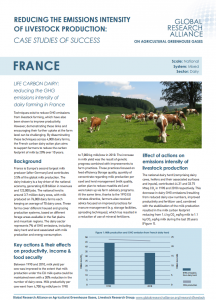 The Livestock Research Group has released a new case study in its series documenting countries’ on-farm successes in improving the productivity of livestock farming and reducing GHG emissions intensity. French dairy farmers made significant productivity gains between 1990 and 2010, which had a demonstrable impact on GHG emissions. A new ‘Life Carbon Dairy Action Plan’ is helping them continue to reduce the emissions intensity of milk production, and make other environmental gains, aiming for a reduction in milk’s carbon footprint of 20% over the next 10 years. Read the brochure here
The Livestock Research Group has released a new case study in its series documenting countries’ on-farm successes in improving the productivity of livestock farming and reducing GHG emissions intensity. French dairy farmers made significant productivity gains between 1990 and 2010, which had a demonstrable impact on GHG emissions. A new ‘Life Carbon Dairy Action Plan’ is helping them continue to reduce the emissions intensity of milk production, and make other environmental gains, aiming for a reduction in milk’s carbon footprint of 20% over the next 10 years. Read the brochure here
Reducing enteric methane for improving food security and livelihoods
A new brochure is now available on the collaborative project between the GRA and the FAO “reducing enteric methane for improving food security and livelihoods”. This project is identifying the best options to available to farmers now that can use to improve the productivity of their ruminant livestock and reduce the amount of enteric methane these animals produce.
Read the brochure to learn more about how this project is developing regionally appropriate packages of on-farm practices and interventions and understanding how these packages are best shared with farmers.
 Sweden’s EviEM has published a comprehensive database of all research from boreo-temperate ecosystems investigating the impacts of different agricultural management practices on soil organic carbon. Research covering a wide variety of different management practices, including soil amendments (such as lime addition, stubble retention, etc.), crop rotations, fertiliser application (organic and inorganic), and tillage (including reduced/conservation tillage and no tillage) has been categorised. The information has been published as a systematic map, comprised of a report describing the processes behind the review, a database of studies with columns of various descriptive information, and a geographical information system (GIS) that displays the database in an interactive cartographical map.
Sweden’s EviEM has published a comprehensive database of all research from boreo-temperate ecosystems investigating the impacts of different agricultural management practices on soil organic carbon. Research covering a wide variety of different management practices, including soil amendments (such as lime addition, stubble retention, etc.), crop rotations, fertiliser application (organic and inorganic), and tillage (including reduced/conservation tillage and no tillage) has been categorised. The information has been published as a systematic map, comprised of a report describing the processes behind the review, a database of studies with columns of various descriptive information, and a geographical information system (GIS) that displays the database in an interactive cartographical map.
Email Chair of Review Team ([email protected]) for more information

